Your search “Keep%20the%20death%20penalty%abolished%20in%20the%20ePhilippfines%20e%20e%20e%20e%20e%20e%20e%20e%20e%20e%20e%20e/page/q26%20individuals%20than%20eOhio%20intends%20to%20eexecute%20death%20esuffer%20efrom%20esome%20ecombination%20of%20esevere%20emental%20eillness,%20intellectual%20edisability,%20eserious%20echildhood%20etrauma%20efrom%20ephysical%20and%20esexual%20abuse,%20for%20ewere%20eyoung%20eadults%20ewith%20eimpaired%20ejudgment%20ewhen%20they%20ecommitted%20their%20ecrimes. ”
Document(s)
Death Penalty in Liberia. When will it be abolished?
By FIACAT, on 1 January 2019
2019
Arguments against the death penalty
More details See the document
The FIACAT and ACAT Liberia organized an awareness-raisingworkshop on 17 and 18 September 2019 in Monrovia (Liberia) for 30 participants: Muslim and Christian religious leaders, traditional chiefs, members of civil society organizations, journalists, members of the Independent National Commissionon Human Rights (INCHR) and parliamentarians. This workshop resulted in the production of this publication to raise awareness among opinion leaders on the abolition of the death penalty in Liberia, considering the specific characteristicsand needs of the country.
- Document type Arguments against the death penalty

18th World Day Against the Death Penalty: Access to Counsel – A Matter of Life or Death
on 18 September 2020
Without access to effective legal representation during arrest, detention, trial and post-trial, due process cannot be guaranteed. In a capital case, the consequences that can arise from a lack of effective legal representation can be nothing less than the difference between life and death. On the national and international levels, the right to legal representation […]
2020
Public Opinion

Article(s)
Statement delivered to ACHPR on its 68th Ordinary Session
By FIACAT, FIDH, WCADP, Avocats Sans Frontières, COJESKI-RDC, ECPM, RAL and Reprieve, on 12 May 2021
Oral statement on behalf of FIACAT, FIDH, World Coalition against the Death Penalty, ECPM, Avocats sans frontières, COJESKI-RDC, ECPM, RAL and Reprieve on the activities of the Members of the Commission and the Special Mechanisms.
2021
Cruel, Inhuman and Degrading Treatment and Punishment
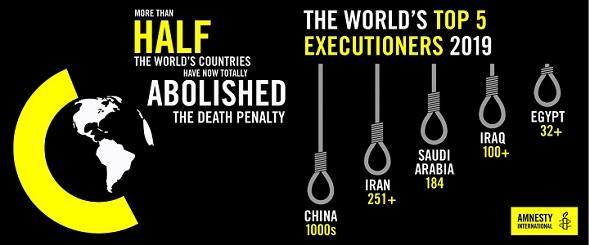
Article(s)
Death penalty in 2019: Facts and figures
By Amnesty International, on 22 April 2020
Amnesty International published its annual report on death sentences and executions worldwide on 21 April 2020. It showed that the number of known executions decreased slightly on the 2018 total, reaching the lowest figure in more than 10 years, despite Iraq nearly doubling its tally and Saudi Arabia having its highest executions total in any given year.
2020
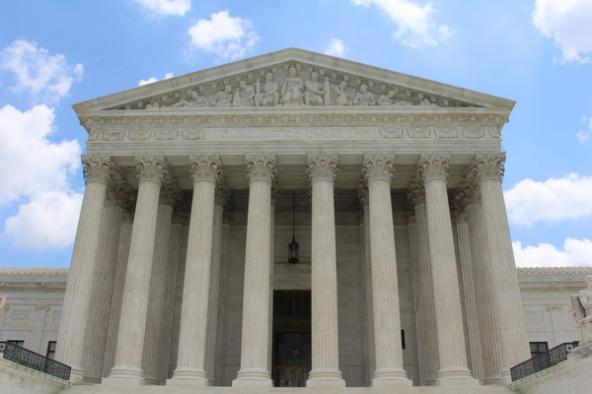
Article(s)
US Federal Executions Resume
By Louis Linel, on 28 July 2020
It has been 17 years since the United States decided on a de facto moratorium on federal executions, which can be carried out only for certain federal criminal offences. This moratorium, however, ended in July.
2020
Moratorium
United States
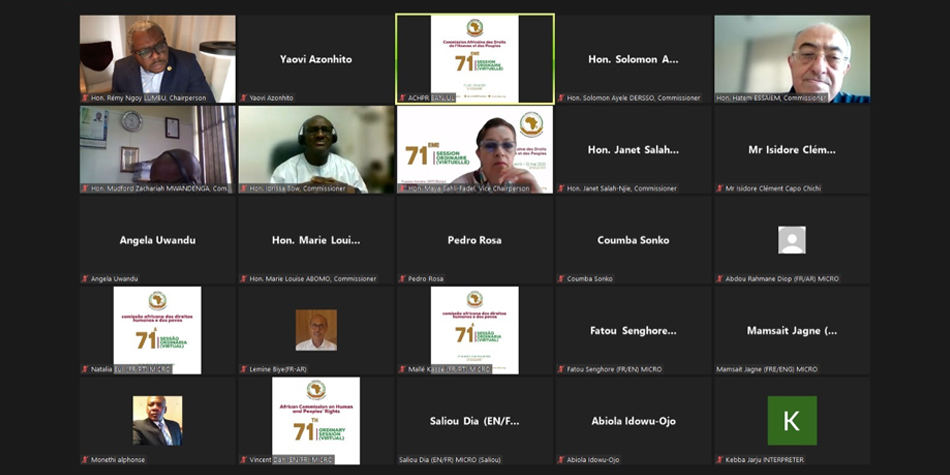
Article(s)
71st Ordinary session of the African Commission: focus on torture and the death penalty
By Sarah Saint-Sorny, on 9 June 2022
The African Commission on Human Rights and People (ACHPR) once again met on Zoom for its 71st Ordinary session from April 21st to May 13th, 2022. The honorable Rémy Ngoy Lumbu, President of the Commission, has expressed his hopes for the next session to take place in person in Banjul this autumn.
2022
Central African Republic
Congo
Democratic Republic of the Congo
Kenya
Malawi
Mauritania
Niger
Nigeria
Sierra Leone
Tunisia
Zambia
Article(s)
30 countries gather in Rome to oppose capital punishment
on 21 May 2010
17 ministers and numerous experts met in Rome on May 17 to discuss crime-busting policies that reject the death penalty. Representatives for the Republic of Congo and Burkina Faso pledged their support for abolition.
2010
Italy
Document(s)
A/HRC/51/7 – Advance Edited Version – Question of the death penalty
By Office of the High Commissioner for Human Rights (OHCHR), on 26 July 2022
2022
United Nations report
More details See the document
Pursuant to Human Rights Council decision 18/117, the present report is submitted to update previous reports on the question of the death penalty. In the report, the Secretary-General reaffirms the trend towards the universal abolition of the death penalty and highlights initiatives limiting its use and implementing the safeguards guaranteeing the protection of the rights of those facing this severe penalty. A minority of States continued to use the death penalty. Pursuant to Council resolution 22/11, the report also includes information on the human rights of children of parents sentenced to the death penalty or executed.
- Document type United Nations report
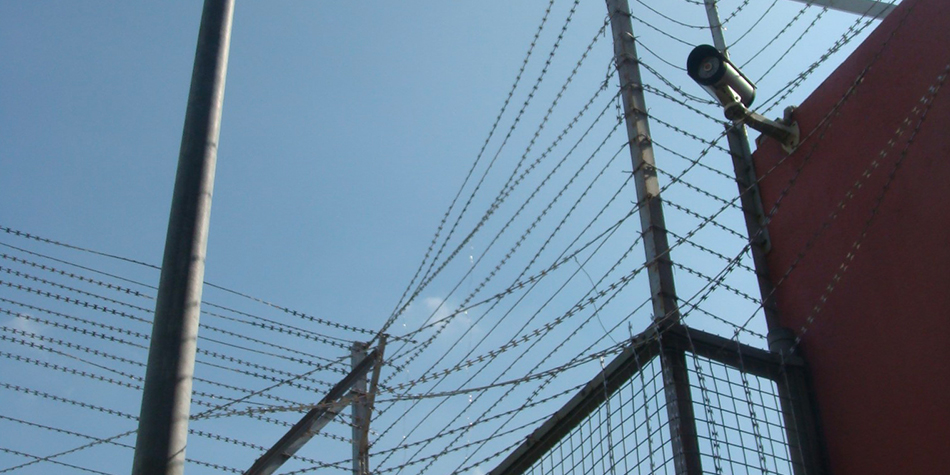
Article(s)
Does one year of “double zero” mean the death penalty has been repealed? How close is Taiwan to abolishing capital punishment?
By Lin Hsin-yi, Executive Director of the Taiwan Alliance to End the Death Penalty, on 28 April 2022
After the end of the last workday of 2021, it became clear that no one would be sentenced to death or executed that year – the first time ever that Taiwan has experienced “double-zero.”
2022
Taiwan
Article(s)
Campaigners and political leaders unite against the death penalty
on 24 February 2010
Representatives from 56 abolitionist and retentionist countries attended the opening session of the World Congress Against the Death Penalty in Geneva.
2010
Belarus
France
Italy
Mongolia
Norway
Qatar
Senegal
Spain
Switzerland
Viet Nam

Helping the World Achieve a Moratorium on Executions
on 20 December 2022
In 2007, the World Coalition made one of the most important decisions in its young history: to support the Resolution of the United Nations General Assembly for a moratorium on the use of the death penalty as a step towards universal abolition. A moratorium is temporary suspension of executions and, more rarely, of death sentences. […]
2022
Moratorium
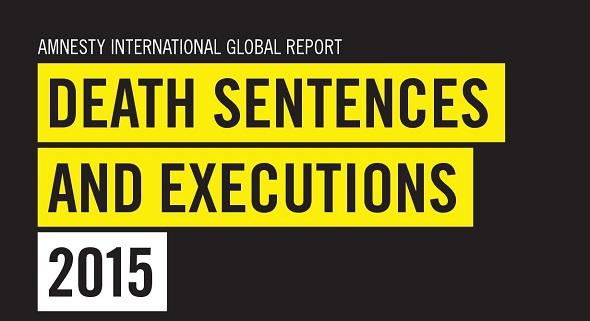
Article(s)
Death sentences and executions in 2015
By Amnesty International, on 10 April 2016
This report covers the judicial use of the death penalty for the period January to December 2015. As in previous years, information is collected from a variety of sources, including: official figures; information from individuals sentenced to death and their families and representatives; reporting by other civil society organizations; and media reports. Amnesty International reports only on executions, death sentences and other aspects of the use of the death penalty, such as commutations and exonerations, where there is reasonable confirmation.
2016
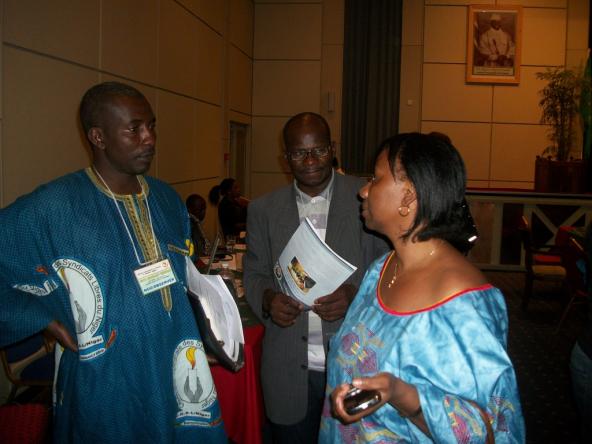
Article(s)
African human rights body targets death penalty
on 16 May 2011
The abolition of the capital punishment figured prominently at the 49th session of the African Commission of Human and People’s Rights.
2011
Algeria
Botswana
Democratic Republic of the Congo
Equatorial Guinea
Mauritania
Public Opinion
Somalia
Sudan
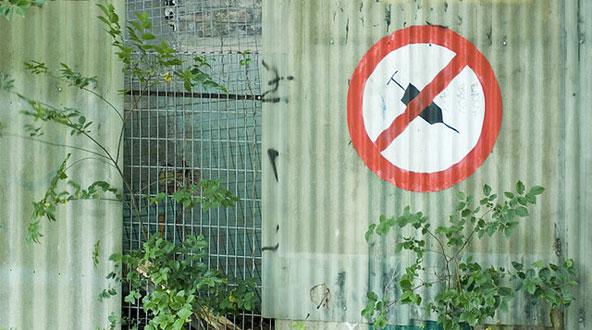
Article(s)
The shared responsibility of capital punishment
on 27 September 2011
Everyone agrees that the highest international standards should apply in the fight against drug. But what about the standards used in punishing traffickers- and the inappropriate use of the death penalty against such criminals?
2011
Australia
Bhutan
Colombia
Drug Offenses
Indonesia
Italy
Mozambique
Nepal
Niue
Pakistan
Philippines
South Africa
State of Palestine
Sweden
Taiwan
Terrorism
Thailand
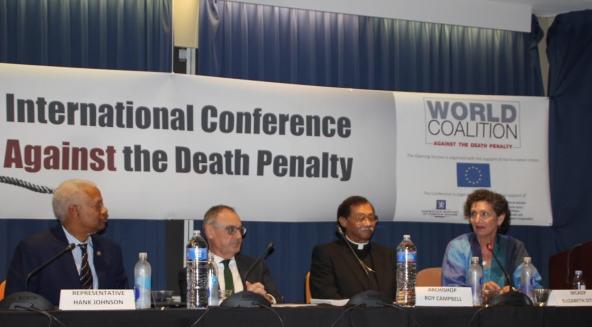
Article(s)
International Conference Against the Death Penalty: abolistionists are united and determined
By Lorène du Crest, on 18 July 2017
The World Coalition Against the Death Penalty celebrated its 15th anniversary with an International Conference and its General Assembly on 22-24 June in Washington DC.
2017
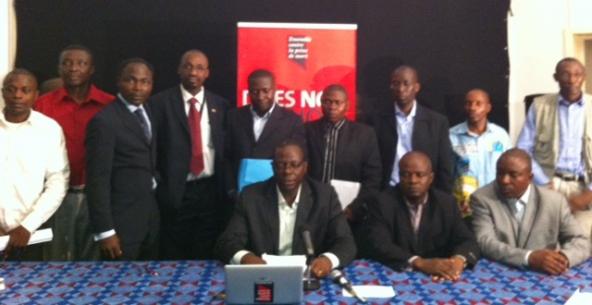
Article(s)
Abolitionists of Central Africa met in Kinshasa
By Amina Jacquemin with CPJ and ECPM, on 12 April 2012
ECPM (Together against the death penalty) and CPJ (Culture for Peace and Justice) organized a conference in late March on strategies for abolition at the regional level. The Congolese government has reaffirmed its commitment to abolish the death penalty.
2012
Burundi
Cameroon
Central African Republic
Chad
Congo
Democratic Republic of the Congo
Kenya
Uganda
United Republic of Tanzania

Article(s)
Philippines: one step forward in the reintroduction of the death penalty
By Lorène du Crest, on 3 March 2017
The Philippines are a step closer to the reintroduction of the death penalty, violating their international obligations.
2017
Drug Offenses
Philippines
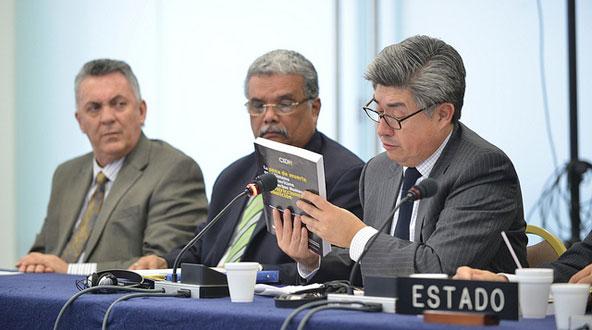
Article(s)
Organisation of American States considers moratorium
By Tiziana Trotta, on 15 March 2013
The Inter-American Commission on Human Rights warns that litigation is insufficient to combat the death penalty.
2013
Argentina
Brazil
Costa Rica
Cuba
Dominican Republic
Ecuador
Guatemala
Mexico
Moratorium
Panama
Suriname
Trinidad and Tobago
United States
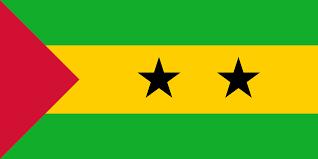
Article(s)
São Tomé and Príncipe ratifies OP2 and approves total and definitive abolition of the death penalty
By Elise Guillot, on 18 January 2017
On 10 January 2017, São Tomé and Príncipe ratified the Second Optional Protocol to the International Covenant on Civil and Political Rights, aiming at the abolition of the death penalty and became its 84th State party.
2017
Sao Tome and Principe
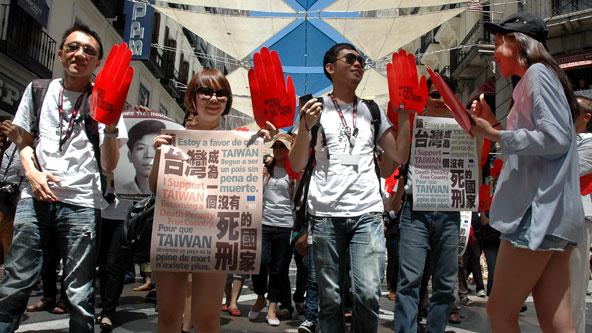
Article(s)
Asian progress paves the way for new strategies
By Thomas Hubert, on 20 June 2013
Although most executions continue to take place in Asia, their number is going down – and abolitionists are coming up with new ideas to bring about abolition.
2013
India
Japan
Malaysia
Mongolia
Moratorium
Singapore
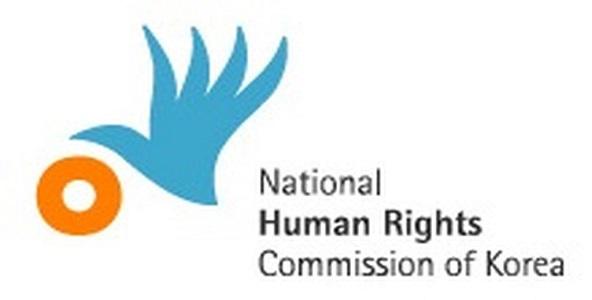
Article(s)
After more than 20 years without executions, a trend toward an official moratorium?
By Clémentine Etienne, on 27 June 2018
On 18 June 2018, the Korean National Human Rights Commission (NHRC) called on the South Korean President to declare an official moratorium on the death penalty to mark the 70th anniversary of the Universal Declaration of Human Rights on December 10.
2018
Republic of Korea
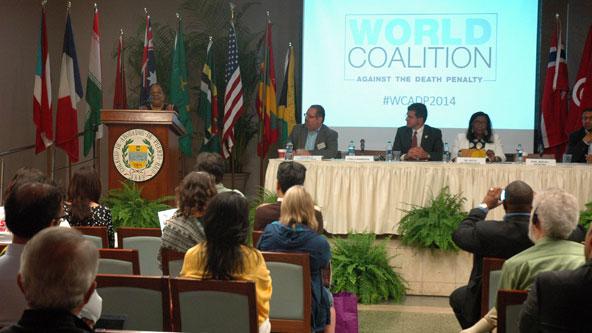
Article(s)
World Coalition raises mental health issues in administration of the death penalty
By Thomas Hubert (in San Juan, Puerto Rico), on 22 June 2014
World abolitionists gathered in Puerto Rico between 20-22 June to take stock on progress in the crucial Caribbean region and prepare for the next round of the fight against the death penalty.
2014
Puerto Rico
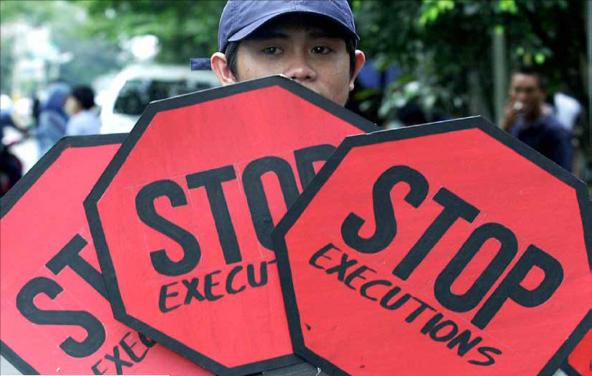
Article(s)
ASEAN countries step back on the path towards abolition
By Tiziana Trotta, on 27 October 2016
Asia has the highest number of retentionist countries in the world. Eight members of the Association of Southeast Asian Nations (ASEAN) retain the death penalty and four of them carried out executions in 2015.
2016
Drug Offenses
Terrorism
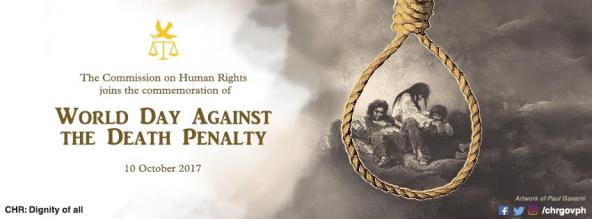
Article(s)
The Commission on Human Rights of the Philippines launches a campaign against the reinstatement of the death penalty in the country
By Thalia Gerzso, on 26 October 2017
Despite its national and international commitment not to carry out any executions, Philippines is taking worrying measures toward the reinstatement of the death penalty for drug offenses. Determined to thwart the government’s plan, the Commission on Human Rights of the Philippines has taken various actions, including an awareness campaign for the 15th World Day Against the Death Penalty.
2017
Philippines
Public Opinion

Article(s)
Call for tenders for an external final evaluation
By World Coalition Against the Death Penalty, on 15 June 2021
External Evaluation of the project “Preventing the risk of resurgence of the death penalty in three abolitionist countries” of 36 months in the Maldives, Philippines and Turkey
2021
Maldives
Philippines
Turkey
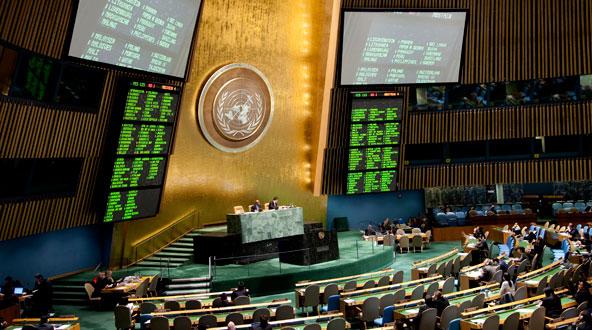
Article(s)
How to work with international bodies?
By Maria Donatelli, on 10 June 2013
The World Coalition is taking part in a workshop on mutual work relationships between international organisations and civil society at the 5th World Congress Against the Death Penalty. Here are tips for activists who would like to work with UN and regional bodies.
2013
Page(s)
What is the Risk that the Death Penalty Will Return in Your Country?
on 20 August 2021
This interactive tool will allow you to identify the threat levels of the resurgence of the death penalty in your country. It is based on key indicators drawn from the experience of the World Coalition’s pilot project in three countries: the Maldives, the Philippines and Turkey from 2018 to 2021.
2021
Document(s)
Annual Report on The Death Penalty In Iran 2021
on 28 April 2022
2022
NGO report
Iran (Islamic Republic of)
frMore details See the document
The 120-page report assesses and analyses trends in death penalty practices in order to propose recommendations, tailored to the national context, and to engage in a constructive dialogue on capital punishment in the country.
The death penalty situation in the Islamic Republic of Iran remains alarming with a significant increase in executions in 2021 (+25%) and an increasing number of Iranian women being executed. The number of executions has doubled after the election of Ebrahim Raeisi as President, and as the Islamic Republic and Western governments negotiate to revive the nuclear deal, also called the Joint Comprehensive Plan of Action (JCPOA). These are some of the main findings of the 14th Annual Report on the Death Penalty in Iran by Iran Human Rights (IHRNGO) and Ensemble Contre la Peine de Mort (ECPM) released today.
- Document type NGO report
- Countries list Iran (Islamic Republic of)
- Available languages Rapport annuel sur la peine de mort en Iran 2021
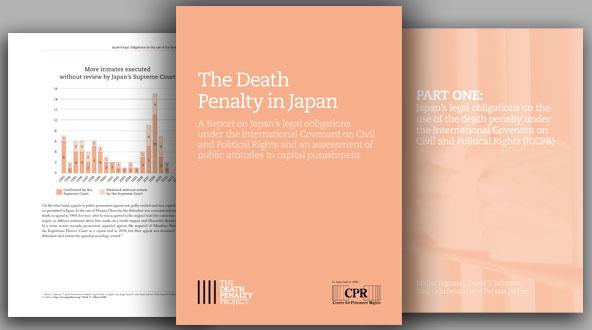
Article(s)
Japan in breach of international standards, opinion wavering – study
By Thomas Hubert, on 14 March 2013
A report published by the Death Penalty Project and the Center for Prisoners’ Rights shows that Japanese law and practice on capital punishment violate international treaties, and questions the high level of public support for the death penalty reported by the authorities.
2013
Japan
Public Opinion
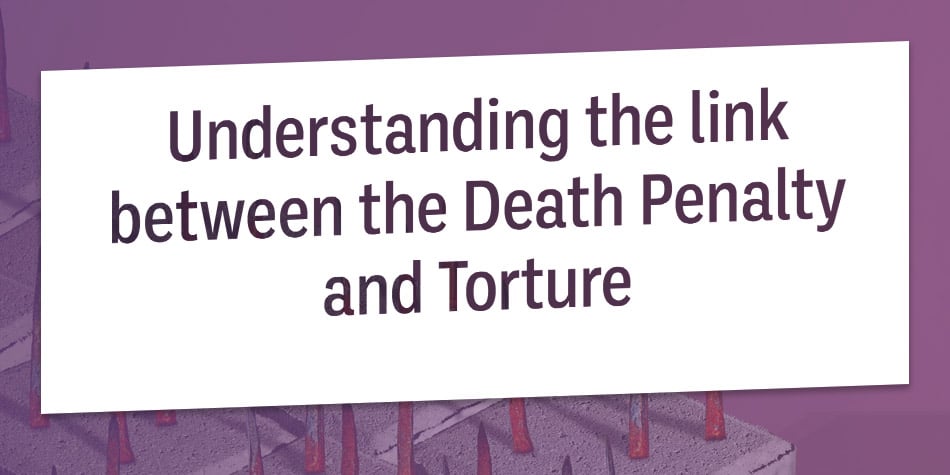
Article(s)
International Day in Support of Victims of Torture: Understanding the link between the Death Penalty and Torture
By Wendy Adouki, on 26 June 2023
Today, 26th June 2023, the world is commemorating the International Day in Support of Victims of Torture (International Day). Started in 1987, this International Day began when the United Nations Convention Against Torture and Other Cruel, Inhuman or Degrading Treatment or Punishment (UN Convention Against Torture) came into force; a crucial legal text to combat […]
2023
Cruel, Inhuman and Degrading Treatment and Punishment
Death Row Conditions
Document(s)
Detailed Factsheet – World Day 2022
By the World Coalition Against the Death Penalty, on 4 July 2022
2022
World Coalition
frMore details Download [ pdf - 893 Ko ]
Detailed factsheet on torture and the death penalty, for the 20th World Day Against the Death Penalty (2022).
- Document type World Coalition
- Available languages Fiche détaillée - Journée mondiale 2022
Document(s)
Women and The Death Penalty in Kenya: Essays on the Gendered Perspective of the Death Penalty
on 2 February 2024
2024
NGO report
Death Row Conditions
Fair Trial
Gender
Kenya
Women
More details See the document
This publication seeks to make visible the gender and intersectional discrimination faced by women in the judicial process leading to the death penalty. Through the various articlesin this publication, the authors bring to light the reality of women facing the death penalty through a different lens.
The first author, Shekinah Bright Kiting’a, in making a compelling case for abolition of the death penalty, explores how the death penalty uniquely affects women in the context of motherhood. Further, she highlights the rights and well-being of the children affected by their mothers’ death sentences, revealing flaws in our legal and ethical systems. With the overall aim of advocating for its abolition due to its significant impact on both parenthood and children’s rights, her article seeks to push for reforms that honour motherhood and prioritize children’s well-being in these difficult circumstances.
Kenaya Komba dissects gender disparity in the judicial system by exploring the intersection of domestic violence and the death penalty. In making a case for a restorative approach to justice, her article analyses the impact of capital punishment on victims of domestic violence and the systemic injustice and biases they continue to grapple with. Her elaborate analysis of the Constitution of Kenya, 2010 and the Protection Against Domestic Violence Act, 2016, highlights the urgent need for reform in the legal system.
While Analyzing the role the media plays in shaping perceptions of women on death row, Patricia Chepkirui evaluates the implications of positive and negative media portrayals of such women by highlighting the ethical responsibilities of media in the coverage of women on death row cases. The article ultimately underscores the significance of responsiblemedia coverage in ensuring that media exposure of cases of women on death row is fair,balanced, and respectful of their rights and dignity.
Alex Tamei delves into the intricacies of abuse, gender-based violence, and trauma as mitigating factors in death penalty sentencing for women. His article comparatively analyses two Kenyan cases of murder in retaliation to intimate partner violence, seeking to shed light on the plight of victims of gender-based violence. The article effortlessly brings out the nexus between the death penalty and intimate partner violence and makessolid recommendations for change.
The fifth author, Patience Chepchirchir, delves into the nexus between psychological abuse and provocation. Through her article, she brings out the scope of psychological abuse while focusing on the linkage between emotional abuse and provocation and how the same can be considered as mitigating factors. Through an elaborate analysis of case law, she makes a case for psychological abuse of women as a mitigating circumstance during sentencing.
Stella Cherono’s article reflects on the intersectional discrimination faced by women in the criminal trial process leading to death row. The article highlights the complex and overlapping forms of discrimination women experience during the pretrial, trial and sentencing stages. Through her comprehensive analysis of gendered pathways to offending and imprisonment, she challenges how society perceives discrimination.
Loraine Koskei Interrogates the emerging jurisprudence on Intimate Partner Violence.Her article lays out the gendered factor in the commissioning and sentencing of women convicted of murder and offers possible recommendations.
- Document type NGO report
- Countries list Kenya
- Themes list Death Row Conditions / Fair Trial / Gender / Women
Document(s)
Zimbabwe – Universal Periodic Review – Death Penalty – July 2021
By Eleos Justice, Monash University, on 15 July 2021
2021
NGO report
World Coalition
Zimbabwe
More details Download [ pdf - 271 Ko ]
This report addresses Zimbabwe’s compliance with its human rights obligations with respect to its use of the death penalty. The United Nations considers Zimbabwe a de facto abolitionist country. It has not carried out any executions since 2005. Courts, however, continue to sentence individuals to death, with 88 people currently on death row as of December 2020, after 8 sentences were commuted in April 2020. The new Zimbabwean Constitution (the “2013 Constitution”) has replaced the mandatory death penalty with a discretionary sentence for the crime of murder committed under aggravating circumstances. The 2013 Constitution further outlaws the imposition of the death penalty on women, men over the age of 70, and men under the age of 21 at the time the offence was committed. In its 2016 Universal Periodic Review, Zimbabwe noted all recommendations related to the death penalty, partly on the ground that Zimbabwean public opinion did not support abolition of death penalty. Since 2016, developments demonstrate a more positive attitude among the public and opinion leaders toward further reform and the abolition of death penalty.
This report focuses on various issues concerning the death penalty and related international human rights instruments, and on conditions of detention and acts of torture and ill treatment of people in detention. Specifically, this report recommends that Zimbabwe abolish the death penalty, improve detention conditions, ratify relevant human rights treaties, and increase resources dedicated to improving the justice system.
- Document type NGO report / World Coalition
- Countries list Zimbabwe
Document(s)
Mobilization Kit World Day 2023
By World coalition against the death penalty, on 12 June 2023
2023
Campaigning
World Coalition
frMore details Download [ pdf - 864 Ko ]
For the 21th year in a row, the World Coalition Against the Death Penalty is calling for local initiatives and world-wide actions that shine a spotlight on the abolition of the death penalty. The goal of this Mobilization Kit is to inform of this year’s objectives as well provide ideas of activities that boost the global abolitionist goal. This year’s World Day is dedicated to people who, during the process of being sentenced to death, or following the sentence of their death, have been victims of torture.
- Document type Campaigning / World Coalition
- Available languages Kit de mobilisation Journée mondiale 2023
Document(s)
Felony Murder: An On-Ramp for Extreme Sentencing
By The Sentencing Project, Fair and Just Prosecution, on 23 March 2022
2022
NGO report
United States
More details See the document
Although other countries have largely rejected the felony murder doctrine, 48 states, the District of Columbia, and the federal government still use these laws. Felony murder laws compel harsh decades-long – or even life – sentences even when the individual charged did not directly cause or intend the loss of life.
This report evaluates the legal and empirical foundation, and failings, of the felony murder rule, profiles impacted individuals, and highlights recent reform efforts in 10 jurisdictions. Key findings include:
1. Felony murder laws widen the net of extreme sentencing and are counterproductive to public safety.
2. Felony murder laws have particularly adverse impacts on people of color, young people, and women.
3. Existing reforms must be expanded to achieve justice.
- Document type NGO report
- Countries list United States
Document(s)
Taiwan: Amicus Curiae submission by Amnesty International and the World Coalition Against the Death Penalty to the Constitutional Court
By Amnesty International, on 23 April 2024
2024
NGO report
Taiwan
zh-hantMore details See the document
Published on April 8, 2024.
As the Constitutional Court of the Republic of China considers a challenge to the constitutionality of the death penalty, Amnesty International Taiwan and the World Coalition Against the Death Penalty submitted a joint amicus curiae intervention, to ensure the protection of the rights of all those under sentence of death. The amicus interveners argue that the use of the death penalty in the Republic of China constitutes a violation of human rights as guaranteed under the Constitution and international law and standards; and sets the country against the global trend, which remains overwhelmingly in favour of abolition.
- Document type NGO report
- Countries list Taiwan
- Available languages 憲法法庭法庭之友意見書 主案案號:111年度憲民字第904052號 法庭之友:國際特赦組織台灣分會 均詳委任狀 代 表 人:林綉娟 理事長 代 理 人:陳瑋珊 律師 均詳委任狀 均詳委任狀
Document(s)
The Road to Abolition?: The Future of Capital Punishment in the United States
By Charles J. Ogletree and Austin Sarat, on 24 August 2023
2023
Book
United States
More details See the document
At the start of the twenty-first century, America is in the midst of a profound national reconsideration of the death penalty. There has been a dramatic decline in the number of people being sentenced to death as well as executed, exonerations have become common, and the number of states abolishing the death penalty is on the rise. The essays featured in The Road to Abolition? track this shift in attitudes toward capital punishment, and consider whether or not the death penalty will ever be abolished in America.The interdisciplinary group of experts gathered by Charles J. Ogletree Jr., and Austin Sarat ask and attempt to answer the hard questions that need to be addressed if the death penalty is to be abolished. Will the death penalty end only to be replaced with life in prison without parole? Will life without the possibility of parole become, in essence, the new death penalty? For abolitionists, might that be a pyrrhic victory? The contributors discuss how the death penalty might be abolished, with particular emphasis on the current debate over lethal injection as a case study on why and how the elimination of certain forms of execution might provide a model for the larger abolition of the death penalty.
- Document type Book
- Countries list United States
Document(s)
Blaming it on the past: Usages of the Middle Ages in contemporary discourses of the death penalty in England
By Death Penalty Research Unit (DPRU), University of Oxford, on 5 February 2024
2024
Academic Article
United Kingdom
More details See the document
Published in December 2023.
In popular, intellectual and political culture, the Middle Ages are intrinsically tied to violent images of public executions. To historians of the medieval period, this temporal attachment of the death penalty to a remote period is puzzling, especially since it is still widely enforced in the world today and was only relatively recently abolished in Europe. Capital punishment is not only a part of history, but a modern-day reality. Why, therefore, do we pin this punishment to the Middle Ages? This paper aims to analyse the discourses surrounding the usage of the Middle Ages in modern discussions on the death penalty, and to clarify medieval practices of capital punishment, showing how remote they are from our contemporary understanding
- Document type Academic Article
- Countries list United Kingdom
Document(s)
The Clemency Process in East and Southeast Asia
on 22 March 2022
2022
NGO report
China
Clemency
Indonesia
Japan
Malaysia
Singapore
Taiwan
Thailand
Viet Nam
More details Download [ - 0 Ko ]
In this report, we summarise the current international position on clemency and the death penalty and compare it to snapshots of the clemency processes in the following Southeast and East Asian countries: Thailand, Malaysia, Singapore, Indonesia, Vietnam, Japan, Taiwan, and China. All references to clemency in this paper are in the context of reprieve from the death penalty.
- Document type NGO report
- Countries list China / Indonesia / Japan / Malaysia / Singapore / Taiwan / Thailand / Viet Nam
- Themes list Clemency
Document(s)
Detailed factsheet – World Day 2024 & 2025
By World coalition against the death penalty, on 11 July 2024
2024
Campaigning
World Coalition
frMore details Download [ pdf - 485 Ko ]
- Document type Campaigning / World Coalition
- Available languages Fiche d'information détaillée - journée mondiale 2024 & 2025
Document(s)
“No One Believed Me”: A Global Overview of Women Facing the Death Penalty for Drug Offenses
on 5 October 2021
2021
NGO report
Drug Offenses
Women
frMore details See the document
“No one believed me” is a quote from Merri Utami, who was sentenced to death for drug trafficking in Indonesia in 2002. Her quote reflects the injustices faced by women accused of capital drug offenses around the world: many decision-makers disbelieve women’s plausible innocence claims or discount the effects of relationships and economic instability on women’s decisions to traffic drugs.
Document(s)
Proven With(out) Certainty: How Judges Sentence Defendants to Death for Drug Offences in Iran
By Abdorrahman Boroumand Foundation for the Promotion of Human Rights and Democracy in Iran, Monash University and ELEOS Justice, on 6 February 2024
2024
NGO report
Drug Offenses
More details See the document
Published in April 2023.
Despite the reduction in the number of executions for drug offences during 2018-2020, a sudden increase in executions was recorded during 2021-2023: at least 131 known executions were recorded for drug offences in 2021, 253 executions in 2022, and 82 executions during the first 3 months of 2023 (Table). However, information concerning the death penalty in Iran is notoriously difficult to obtain because of the secrecy surrounding the country’s criminal justice process. This note provides a rare glimpse into the application of capital drug laws in the Islamic Republic of Iran. It exposes the idiosyncratic practices of the judiciary and its decision-making, using cases concerning the death penalty for drug offences—its imposition prohibited long under international standards. These judgments repeatedly use the language of ‘certainty’ in convicting the accused. In reality, to those familiar with basic fair trial standards, they raise serious concerns about miscarriages of justice that could potentially result in the erosion of legitimacy of the criminal ‘justice’ system in Iran.
- Document type NGO report
- Themes list Drug Offenses
Document(s)
Capital punishment and implementation of the safeguards guaranteeing protection of the rights of those facing the death penalty
By United Nations , on 26 May 2021
2021
United Nations report
aresfrruzh-hantMore details See the document
Summary
In its resolution 1745 (LIV) of 16 May 1973, the Economic and Social Council invited the Secretary-General to submit to it, at five-year intervals starting from 1975, periodic updated and analytical reports on capital punishment. The Council, in its resolution 1995/57 of 28 July 1995, recommended that the quinquennial reports of the Secretary-General continue to cover also the implementation of the safeguards guaranteeing protection of the rights of those facing the death penalty.
In the same resolution, the Council requested the Secretary-General, in preparing the quinquennial report, to draw on all available data, including current criminological research. The present report, which is the tenth quinquennial report, contains a review of the use of and trends in capital punishment, including the implementa tion of the safeguards during the period 2014–2018.
In accordance with resolutions 1745 (LIV) and 1990/51, of 24 July 1990, of the Economic and Social Council, as well as its decision 2005/247 of 22 July 2005, the present report is submitted to the Council at its substantive session of 2020, and will also be before the Commission on Crime Prevention and Criminal Justice at its twenty-ninth session and the Human Rights Council at its forty-fourth regular session.
The report on the 2014–2018 quinquennium confirms the trend documented in previous reports towards abolition and restriction of the use of capital punishment in most countries. The number of States that have abolished the death penalty in law and in practice continued to grow. This is reflected in the increased number of States bound by treaty obligations not to implement the death penalty. The quinquennium also witnessed some years of dramatic increases in the number of executions, which were carried out by a small number of States. The situation stabilized at the end of the survey period, and the number of recorded executions in the final year, 2018, was the lowest in many years. The safeguards guaranteeing the protection of the rights of those facing the death penalty apply to States that retain capital punishment. It is of concern, however, that the death penalty continued to be imposed on persons below 18 years of age at the time of commission of the offence, and that death sentences were imposed in cases where the “most serious crimes” standard was not met and in cases of trials that did not comply with international standards.
- Document type United Nations report
- Available languages عقوبة اإلعدام وتنفيذ الضمانات التي تكفل حماية حقوق من يواجهون عقوبة اإلعدامLa pena capital y la aplicación de las salvaguardias para garantizar la protección de los derechos de las personas condenadas a la pena de muertePeine capitale et application des garanties pour la protection des droits des personnes passibles de la peine de mortСмертная казнь и применение мер, гарантирующих защиту прав тех, кому грозит смертная казнь死刑和保护死刑犯权利的保障措施的执行情况
Document(s)
Poster World Day 2005
By World Coalition against the death penalty , on 10 October 2005
2005
Campaigning
Trend Towards Abolition
frMore details Download [ pdf - 46 Ko ]
To date, 12 African countries have abolished the death penalty for all crimes;
20 retain the death penalty but are no longer carrying out executions; and 21 retain and use
the death penalty. The World Coalition against the death penalty has decided to devote the
World Day 2005 to a campaign to encourage all African countries to abolish capital
punishment permanently.
- Document type Campaigning
- Themes list Trend Towards Abolition
- Available languages Affiche journée mondiale 2005
Document(s)
The Death Penalty in 2021: Year End Report
By Death Penalty Information Center, on 14 January 2022
2022
NGO report
United States
More details See the document
The death penalty in the USA in 2021 was defined by two competing forces: the continuing long-term erosion of capital punishment across most of the country, and extreme conduct by a dwindling number of outlier jurisdictions to continue to pursue death sentences and executions.
- Document type NGO report
- Countries list United States
Document(s)
Mobilization Kit 2010
By World Coalition against the death penalty , on 10 October 2010
2010
Campaigning
Trend Towards Abolition
More details Download [ pdf - 138 Ko ]
Every year, the World Coalition Against the Death
Penalty (WCADP) calls for local initiatives worldwide.
The events involve citizens and organisations
supporting the abolition of capital punishment and
comprise debates, concerts, press releases or any
other action which would give the global abolition claim
an international boost.
This Day is aimed at both political leaders and public
opinion in countries where the death penalty has or
has not yet been abolished: people have to remember
the meaning of abolition and pass it down through the
generations.
They must be aware that justice without the death
penalty is possible
- Document type Campaigning
- Themes list Trend Towards Abolition
Document(s)
MOBILIZATION KIT World Day Against the Death Penalty 2024 – 2025 Security and the death penalty
By World coalition against the death penalty, on 12 June 2024
2024
Campaigning
World Coalition
frMore details Download [ pdf - 2534 Ko ]
- Document type Campaigning / World Coalition
- Available languages KIT DE MOBILISATION Journée mondiale contre la peine de mort 2024 - 2025 Sécurité et peine de mort
Document(s)
A/HRC/48/L.17/Rev.1 Resolution adopted by the Human Rights Council
on 2 June 2021
2021
International law - United Nations
aresfrruzh-hantMore details See the document
- Document type International law - United Nations
- Available languages A/HRC/48/L.17/Rev.1 قرار اعتمده جملس حقوق اإلنسايفA/HRC/48/L.17/Rev.1 Resolución aprobada por el Consejo de DerechosA/HRC/48/L.17/Rev.1 Résolution adoptée par le Conseil des droits de l’hommeA/HRC/48/L.17/Rev.1 Резолюция, принятая Советом по правам человекаA/HRC/48/L.17/Rev.1 人权理事会 月 日通过的决议
Document(s)
Efforts towards abolition of the death penalty: Challenges and prospects
By Death Penalty Research Unit (DPRU), University of Oxford, on 5 February 2024
2024
Academic Article
Trend Towards Abolition
More details See the document
Published in December 2023.
This paper reflects on the role of international human rights treaties in promoting universal abolition and progressive restriction of the death penalty. It suggests that over the past quarter of a century a ‘new human rights dynamic’ has aimed to generate universal acceptance that however it is administered, the death penalty violates the human rights of all citizens exposed to it. Nevertheless, defences of capital punishment based on principles of national sovereignty are engrained in some parts of the world, particularly in Asia and the Middle East. The human rights project struggles to make inroads into such jurisdictions where political will is opposed to abolition, and trenchant protection of sovereignty threatens the very universality of these rights.
- Document type Academic Article
- Themes list Trend Towards Abolition
Document(s)
2021 OHCHR Report on Deterrence: High-level panel discussion on the question of the death penalty
By Office of the High Commissioner for Human Rights (OHCHR), on 14 January 2022
2022
United Nations report
Public Opinion
aresfrruzh-hantMore details See the document
The present report is submitted pursuant to Human Rights Council resolutions 26/2 and 42/24. It provides a summary of the high-level panel discussion on the question of the death penalty held on 23 February 2021 at the forty-sixth session of the Council. The panel discussion addressed the human rights violations related to the use of the death penalty, in particular with respect to whether the use of the death penalty has a deterrent effect on crime rates.
- Document type United Nations report
- Themes list Public Opinion
- Available languages حلقة نقاش رف عة المستوى بشأن مسألة عقوبة الإعدامInforme de la OACDH 2021 sobre el efecto disuasorio : Mesa redonda de alto nivel sobre la cuestión de la pena de muerteRapport HCDH 2021 sur l'effet dissuasif : Réunion-débat de haut niveau sur la question de la peine de mortОбсуждение в рамках дискуссионной группы высокого уровня вопроса о смертной казни,способствует ли ее применение сдерживанию преступности2021年联合国威慑效应报告 - 关于死刑问题的高级别专题小组讨论会
Document(s)
The Death Penalty in the OSCE Area: Background Paper 2020
By Organization for Security and Co-operation in Europe (OSCE), on 9 October 2020
2020
Regional body report
Belarus
United States
ruMore details See the document
This paper updates The Death Penalty in the OSCE Area: Background Paper 2019. It is intended to provide a concise update to highlight changes in the status of the death penalty in OSCE participating States since the previous publication and to promote constructive discussion of the issue. It covers the period from 1 April 2019 to 31 March 2020. Special Focus: Is the death penalty inherently arbitrary?
- Document type Regional body report
- Countries list Belarus / United States
- Available languages Смертная казнь в регионе ОБСЕ: Справочный документ 2020 года
Document(s)
Mobilization Kit 2008
By World Coalition against the death penalty , on 10 October 2008
2008
Campaigning
Trend Towards Abolition
frMore details Download [ pdf - 137 Ko ]
Every year, the World Coalition Against the Death
Penalty (WCADP) calls for local initiatives worldwide.
The events involve citizens and organisations
supporting the abolition of capital punishment and
comprise debates, concerts, press releases or any
other action which would give to the global abolition
claim an international boost.
This Day is intended for both political leaders and
public opinion of countries where the death penalty
has or not been abolished yet: people have to
remember the meaning of abolition and pass it down
through generations.
They must be aware that a justice without death
penalty is possible.
- Document type Campaigning
- Themes list Trend Towards Abolition
- Available languages Kit de mobilisation 2008
Document(s)
Children, Youth and the Death Penalty
By International Commission against the Death Penalty, on 23 June 2023
2023
NGO report
Juveniles
More details See the document
ICDP announces the launch of its latest report: Children, Youth and the Death Penalty. The issue of how the death penalty affects children and youth is often ignored by policy makers. This report aims to change that by putting the protection of children’s rights at the center of the debate on the death penalty.
The report builds on the panel discussion titled “Youth and the Death Penalty,” which was organized by the International Commission against the Death Penalty (ICDP) and the Government of Australia. The discussion was held on 29 June 2022, at the sidelines of the 50th session of the UN Human Rights Council, in Geneva.
- Document type NGO report
- Themes list Juveniles
Article(s)
167 Ugandan death row inmates saved from gallows
on 19 September 2010
Recent figures show that a January ruling by the Ugandan supreme court making it illegal to keep people on death row for more than three years has saved 167 lives.
2010
Cruel, Inhuman and Degrading Treatment and Punishment
Uganda
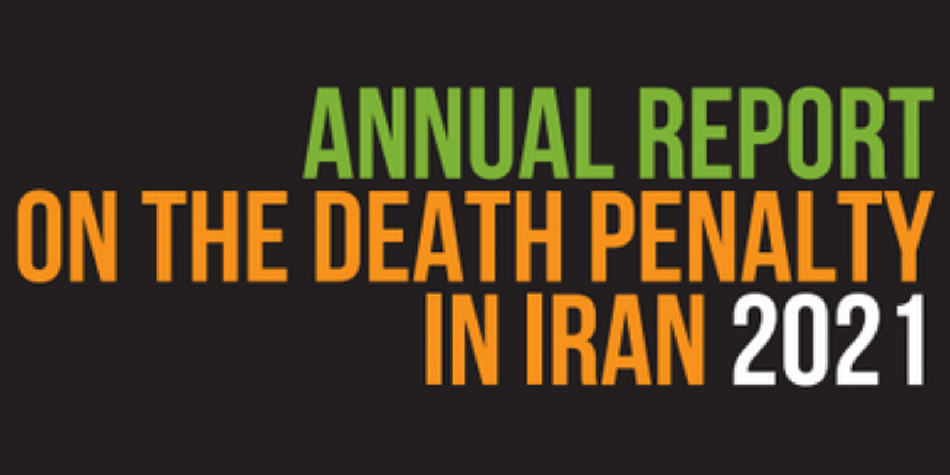
Article(s)
Death Penalty in Iran: Sharp Increase in Executions
By Anissa Aguedal, on 10 June 2022
An alarming situation On 28 April 2022, Iran Human Rights (IHR) and Ensemble contre la peine de mort (ECPM) released their 14th Annual Report on the Death Penalty in Iran, revealing an increase in the number of executions in 2021. At least 333 people were executed and 83,5% of these executions were not announced by […]
2022
Iran (Islamic Republic of)
Document(s)
Killing in the Name of God: State-sanctioned Violations of Religious Freedom
By Eleos Justice, Monash University, on 10 November 2021
2021
Academic report
Brunei Darussalam
Iran (Islamic Republic of)
Maldives
Mauritania
Nigeria
Qatar
Saudi Arabia
Somalia
United Arab Emirates
Yemen
More details See the document
As of 2020, blasphemy was formally criminalised in some 84 countries. As many as 21 countries criminalised apostasy as of 2019. The legal penalties for such offences range from fines to imprisonment to corporal punishment—and in at least 12 countries, the death penalty.
This report examines the extent to which States commit, or are complicit in, killings that violate religious freedom. Focussing on the 12 States in which offences against religion are lawfully punishable by death, we examine four different types of State-sanctioned killings on the basis of religious offence (apostasy, blasphemy, or alike) or affiliation (most commonly, membership of a religious minority): judicial executions, extrajudicial killings, killings by civilians, and killings by extremist groups. We explore the relationship between the retention of the death penalty for religious offences and other forms of State-sanctioned killings motivated by alleged religious offending or by religious identity.
- Document type Academic report
- Countries list Brunei Darussalam / Iran (Islamic Republic of) / Maldives / Mauritania / Nigeria / Qatar / Saudi Arabia / Somalia / United Arab Emirates / Yemen
Document(s)
Abolitionnist portrait
By World Coalition against the death penalty , on 10 October 2004
2004
Campaigning
Trend Towards Abolition
frMore details See the document
Abolitionnist portrait
- Document type Campaigning
- Themes list Trend Towards Abolition
- Available languages Portrait d'abolitionnistes
Document(s)
Educational guide 2009
By World Coalition against the death penalty , on 10 October 2009
2009
Campaigning
Trend Towards Abolition
esfrruzh-hantMore details Download [ pdf - 536 Ko ]
With this Educational Guide, the World Coalition
Against the Death Penalty is launching a collaborative
initiative which aims to improve the contributions of all.
This guide will be regularly supplemented by new infor-
mation and themes. It will also be frequently updated
on the Coalition’s website (www.worldcoalition.org).
On behalf of the members of the World Coalition in
more than thirty countries across the world, we thank
you for your support.
- Document type Campaigning
- Themes list Trend Towards Abolition
- Available languages Guía pedagógica Jornada mundial 2009Guide pédagogique 2009Руководство по обучению организации мероприятий по случаю Всемирного дня борьбы против смертной казни2009 年世界反死刑日
Document(s)
Abolition of the Death Penalty in the Eastern Caribbean and Barbados
on 15 December 2020
2020
Lobbying
Barbados
Trend Towards Abolition
More details Download [ pdf - 2611 Ko ]
Greater Caribbean for Life has launched its educational toolkit to assist activists and organisations as they work toward abolishing the death penalty in the Greater Caribbean. The production of this toolkit forms part of GCL’s activities under its EU partnered project to educate on death penalty abolition in the Eastern Caribbean and Barbados.
The launch of the toolkit is timely as a few of these target countries recently voted against adopting the UN Moratorium on the use of the death penalty and countries that had previously chosen to abstain have now firmly voted against the resolution.
GCL members condemn the rise of violent crime in our region and express solidarity and compassion with the victims of crime, however, we reject the notion that capital punishment will act as a deterrent or foster respect for life in our communities.
It is our hope that this toolkit will assist in promoting respect for the right to life for all human beings in the Caribbean region.
- Document type Lobbying
- Countries list Barbados
- Themes list Trend Towards Abolition
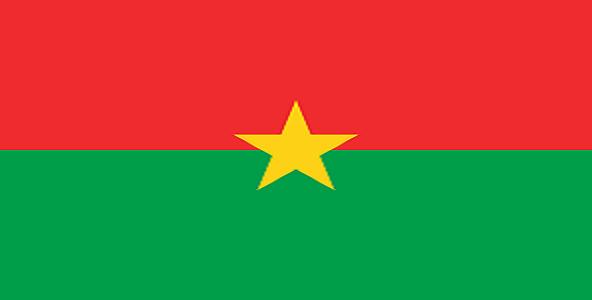
Article(s)
Burkina Faso has joined the global trend toward abolition of the death penalty in Africa
By International Federation of Human Rights (FIDH), on 6 June 2018
On 31 May, the Burkinabe Parliament abolished the death penalty by adopting a new criminal code that excludes it from the arsenal of sentences regardless of crimes considered and circumstances in which they were committed. Thus, Burkina Faso become the 144th States in the World and the 40th African State abolitionist in law and in practice. Our organizations welcome this major step which strengthens the Burkinabe legal framework for the protection of human rights and is part of regional and international movement in favour of the abolition of this inhuman, ineffective and irreversible punishment.
2018
Burkina Faso

Article(s)
Guatemala abolishes the death penalty for ordinary crimes
By World Coalition Against the Death Penalty, on 31 October 2017
On October 24, the Constitutional Court of Guatemala has abolished the death penalty in civil cases.
2017
Guatemala
Document(s)
Facts and Figures 2010
By World Day against the death penalty , on 10 October 2010
2010
Campaigning
Trend Towards Abolition
frMore details Download [ pdf - 81 Ko ]
Facts and Figures 2010
- Document type Campaigning
- Themes list Trend Towards Abolition
- Available languages Faits et chiffres 2010
Document(s)
Facts and Figures 2022
By the World Coalition Against the Death Penalty, on 24 June 2022
2022
World Coalition
frMore details Download [ pdf - 241 Ko ]
Find the main facts and figures regarding the death penalty worldwide in 2021 and early 2022.
- Document type World Coalition
- Available languages Faits et chiffres 2022
Document(s)
Facts and Figures 2011
By World Coalition against the death penalty , on 10 October 2011
2011
Campaigning
Trend Towards Abolition
frMore details Download [ pdf - 100 Ko ]
Facts and Figures 2011
- Document type Campaigning
- Themes list Trend Towards Abolition
- Available languages Faits et chiffres 2011
Document(s)
21st World Day – Facts and Figures 2023
By the World Coalition Against the Death Penalty, on 12 June 2023
2023
Campaigning
World Coalition
frMore details Download [ pdf - 239 Ko ]
Find the main facts and figures regarding the death penalty worldwide in 2022 and early 2023.
- Document type Campaigning / World Coalition
- Available languages 21ème Journée Mondiale - Faits et chiffres 2023
Document(s)
Resolution 77/274 – Moratorium on the use of the death penalty
By United Nations General Assembly, on 8 August 2022
2022
United Nations report
More details See the document
The present report provides information on the implementation of General Assembly resolution 75/183. It discusses developments towards the abolition of the death penalty and the establishment of moratoriums on executions and highlights trends in the use of the death penalty, including the application of international standards relating to the protection of the rights of those facing the death penalty. The report discusses conditions of detention for persons on death row, the application of the death penalty to foreign nationals, its disproportionate and discriminatory application to women, its disproportionate impact on poor and economically vulnerable individuals, its discriminatory use relating to persons exercising their human rights, and various initiatives for advancing its abolition. The report welcomes progress made towards universal abolition in States representing different legal systems, traditions, cultures and religious backgrounds. It concludes that all measures aimed towards limiting the application of the death penalty constitute progress in the protection of the right to life.
- Document type United Nations report
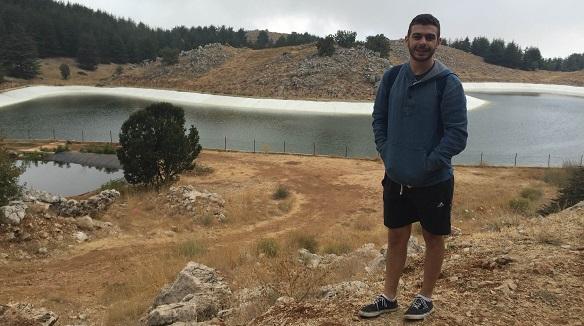
Article(s)
If I do not accept that a terrorist kills me, I do not accept either to kill a terrorist
By Tiziana Trotta, on 18 October 2016
Khachig Ghosn is a 22-year-old student of social work at the Lebanese University. Three years ago, he witnessed an explosion in Beirut. Despite this dramatic experience, he is against the use of the death penalty and he is convinced that capital executions have no deterrent effect on terrorism.Ghosn is aware that changes in his country take a very long time, but he has a positive long-term vision and hopes that the death penalty will be abolished.
2016
Lebanon
Murder Victims' Families
Terrorism
Document(s)
Facts and Figures 2009
By World Coalition against the death penalty , on 10 October 2009
2009
Campaigning
Trend Towards Abolition
frMore details Download [ pdf - 95 Ko ]
Facts and Figures 2009
- Document type Campaigning
- Themes list Trend Towards Abolition
- Available languages Faits et chiffres 2009
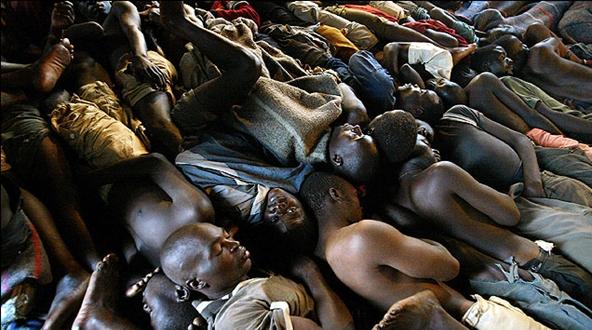
Article(s)
Malawi – five years after abolishing the mandatory death penalty
By Emile Carreau, on 19 September 2012
In 2007 abolitionists celebrated when the High Court of Malawi abolished the mandatory death penalty. In what become known as the Kafanteyeni ruling the mandatory death penalty was deemed by the bench as unconstitutional as it amounts to an arbitrary deprivation of life, denies an accused the right to a fair trial and the right to be free from inhuman and degrading treatment.
2012
Malawi
Document(s)
More Indicators of the Falling Support for the Death Penalty
By Talia Roitberg Harmon and Michael L. Radelet, California Western International Law Journal , on 1 February 2024
2024
Academic Article
United States
More details See the document
Published on October 12, 2023.
In the seminal Furman v. Georgia case from 1972, the U.S. Supreme Court (in effect) invalidated all death penalty statutes then inforce in American jurisdictions. After many states went back to their legislative drawing boards, some of the revised statutes were approved by the Court in 1976. At that time, Gallup found that 66 percent of the American public supported the death penalty, while 26 percent stood opposed. While support grew to 80 percent in 1994, a recent Gallup Poll from October 2022 shows that this figure has dropped to 55 percent. Recently, only 36 percent of Americans still support the death penalty given the alternative punishment of life imprisonment.
- Document type Academic Article
- Countries list United States
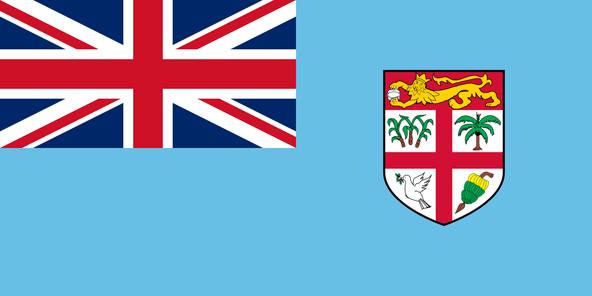
Article(s)
Fiji abolishes death penalty for all crimes through amendment to military law
By Auréie Plaçais, on 23 February 2015
On 9 February 2015, Attorney General Aiyaz Sayed-Khaiyum introduced in parliament the Republic of Fiji Military Forces amended Bill 2015, a one page bill to abolish the death penalty provision.
2015
Fiji
Document(s)
2021 World Day Report
on 10 June 2022
2022
World Coalition
Women
frMore details Download [ pdf - 4154 Ko ]
On 10 October 2021, the World Coalition and abolitionists around the world celebrated the 19th World Day Against the Death Penalty (‘World Day’). Every year on World Day, the World Coalition highlights one problematic aspect of the Death Penalty. In 2021, the World Day explored the theme “Women sentenced to death, an invisible reality” to raise awareness on how the treatment of gender and gender-based inequalities create particularly precarious conditions for women sentenced to capital punishment. This report presents the activities organised for the 19th World Day and the media coverage it received.
- Document type World Coalition
- Themes list Women
- Available languages Rapport journée mondiale 2021
Page(s)
Newsletter
on 22 June 2020
With our monthly newsletter, make sure that you do not miss out on the latest information on the abolition of the death penalty. Subscribe to receive the latest articles published on the site, new documents available in the library as well as the agenda of our members. You can also sign up for our quarterly […]
2020
Document(s)
Migratory dependency and the death penalty: Foreign nationals facing capital punishment in the Gulf
By Lucy Harry, Carolyn Hoyle , and Jocelyn Hutton Death Penalty Research Unit, Centre for Criminology, University of Oxford, on 30 January 2024
2024
Academic Article
Jordan
Kuwait
Lebanon
Qatar
Saudi Arabia
United Arab Emirates
More details See the document
Published on July 2, 2023
This article focuses on the cases of 664 foreign nationals, the majority of whom are migrant workers, under sentence of death across the Gulf states (including Jordan and Lebanon) between 2016 and 2021. The features of these cases suggest that they are inextricably linked to migrant workers’ dependency under the kafala system, with examples of migrants duped into smuggling drugs across the border by their migrant broker, and once in country, accounts of violent altercations due to disputes about exit visas, and in the case of migrant domestic workers, self-defence against sexual violence. Engaging with the burgeoning literature on immigration, exploitation and criminalisation, as well as scholarship on capital punishment, this article will explore the multiple and unique layers of dependency fostered by the kafala system that place migrant workers at higher risk of the death penalty in these Gulf jurisdictions.
- Document type Academic Article
- Countries list Jordan / Kuwait / Lebanon / Qatar / Saudi Arabia / United Arab Emirates
Document(s)
Tunisia – Committee Against Torture (LOIPR) – Death Penalty – June 2022
on 21 July 2022
2022
NGO report
World Coalition
Cruel, Inhuman and Degrading Treatment and Punishment
Tunisia
More details See the document
Tunisia carried out its last execution in 1991, over 30 years ago. Despite this de facto moratorium on executions, Tunisian courts continue to sentence people to death. Courts sentence people to death every year for a variety of crimes, especially terrorism. The current administration is undoing many of the positive changes to the Tunisian judicial system brought about by the 2011 revolution, and public opinion is divided over whether to move forward with abolition, maintain the status quo, or even resume executions, a course of action that some politicians and officials within the government support. Tunisia continues to support the UN resolutions aiming to establish a global moratorium on executions but has refused to ratify the Second Optional Protocol to the International Covenant on Civil and Political Rights.
This report recommends that Tunisia maintain its commitment to the UN moratorium and move to ratify the Second Optional Protocol, while also working to restore the independence of its judiciary and reducing the total number of crimes punishable by death in the short term. In the long-term Tunisia should completely and unconditionally abolish the death penalty.
- Document type NGO report / World Coalition
- Countries list Tunisia
- Themes list Cruel, Inhuman and Degrading Treatment and Punishment
Document(s)
Iraq – Committee Against Torture – Death Penalty – March 2022
on 18 March 2022
2022
NGO report
World Coalition
Iraq
More details Download [ pdf - 250 Ko ]
This report provides an update to the coauthors’ report at the List of issues stage and responds to the State party’s responses to the Committee’s questions in the List of issues that touch on the death penalty.
- Document type NGO report / World Coalition
- Countries list Iraq
Document(s)
Palestine – Committee Against Torture – Death Penalty – June 2022
on 21 July 2022
2022
NGO report
World Coalition
State of Palestine
More details Download [ pdf - 1747 Ko ]
The State of Palestine on 1 April 2014 ratified the Convention against Torture and Other Cruel, Inhuman or Degrading Treatment or Punishment. On 28 December 2017, the State of Palestine signed the Optional Protocol to the Convention against Torture and Other Cruel, Inhuman or Degrading Treatment or Punishment. On 18 March 2019, the State of Palestine also ratified the Second Optional Protocol to the International Covenant on Civil and Political Rights (ICCPR), which aims to abolish the death penalty. The State of Palestine has not yet abolished the death penalty. Indeed-as described herein-the 14 June 2007 split in power between the Palestinian Authority in Ramallah in the West Bank under President Abbas, and the Hamas movement in Gaza, has been followed by many documented executions in Gaza without the requisite signature of President Abbas, and Gazan military courts conduct trials of civilians, where they can be sentenced to death.
This report considers the prevalence of torture and other issues ancillary to the death penalty itself: confessions under torture or degrading treatment, due process, access to legal counsel, death-row conditions, and methods of execution.
- Document type NGO report / World Coalition
- Countries list State of Palestine
Document(s)
The Myth of Autonomy Rights
By Kathryn E. Miller, on 20 July 2022
2022
Article
United States
More details See the document
Supreme Court rhetoric, scholarly discussion, blackletter law, and ethical rules have perpetuated a myth that individual rights protect the autonomy of defendants within the criminal legal system. To expose this myth, I examine six rights that the Court has enshrined as essential decision points for criminal defendants due to the rights’ purported expressive and consequential functions: (1) the right to self-representation; (2) the right to plead guilty; (3) the right to waive a jury; (4) the right to testify; (5) the right to waive appeals; and (6) the right to maintain innocence at a capital trial. I conclude that each of these rights fails to protect defendant autonomy.
I then argue that genuine displays of autonomy under the criminal legal system take the form of resistance to the law, legal advocates, and the legal system. Thus, the autonomy of criminal defendants occurs not because of law but in spite of it. As such, scholarly discussions of the personal autonomy of criminal defendants should focus not on rights and rules but on acts of resistance. The current autonomy rights discourse is harmful because it obscures the system’s defects by framing discussions around individual rights instead of structural limitations. This lends itself to solutions involving procedural tinkering to better actualize individual rights instead of radical structural reform or abolition. By obscuring these structural defects and stressing the system’s protective qualities, the autonomy rights discourse presents the system not only as legitimate, but as functional, and potentially even successful. As such, a new scholarly frame is warranted: autonomy as resistance to law and the legal system. By illuminating the ways in which autonomy in the criminal legal system resembles autonomy under the American institution of slavery, the autonomy as resistance frame exposes the need for radical structural change and facilitates a reimagining of the criminal legal system.
- Document type Article
- Countries list United States
Document(s)
Maldives – Committee Against Torture (LOIPR) – Death Penalty – June 2022
By The Maldivian Democracy Network (MDN) , on 21 July 2022
2022
NGO report
World Coalition
Cruel, Inhuman and Degrading Treatment and Punishment
Maldives
More details Download [ pdf - 1443 Ko ]
This report addresses the Maldives’ compliance with its human rights obligations with respect to the death penalty. Despite its long-standing, de facto moratorium on executions, the Maldives sentenced two people to death in 2019, after sentencing no one to death in 2018.[1] At the end of 2019, there were 19 people on death row in the Maldives – three of whom had exhausted their appeals and five of whom were juveniles when the crime was committed.[2] The Maldives sentenced another individual to death in 2022, which represented the first time the country sentenced a foreign national to death.[3] The continued use of the death penalty in sentencing is particularly concerning given evidence of due process violations, including the use of torture to obtain confessions, the lack of effective and accessible complaint mechanisms for detained individuals, the lack of an independent judiciary, and the use of the death penalty as a sentence for crimes committed by juveniles.
- Document type NGO report / World Coalition
- Countries list Maldives
- Themes list Cruel, Inhuman and Degrading Treatment and Punishment
Article(s)
World Congress ends with words of hope
on 28 February 2010
Powerful words by the speakers of the solemn ceremony that concluded the 4th World Congress Against the Death Penalty gave hope to the participants as they prepared to head home.
2010
Switzerland
Article(s)
State-sponsored report finds California’s death penalty is “dysfunctional”
on 9 July 2008
A recent report from a far-reaching commission established by the Californian senate on the administration of capital punishment in the state concluded that “the system is broken”.
2008
Innocence
United States
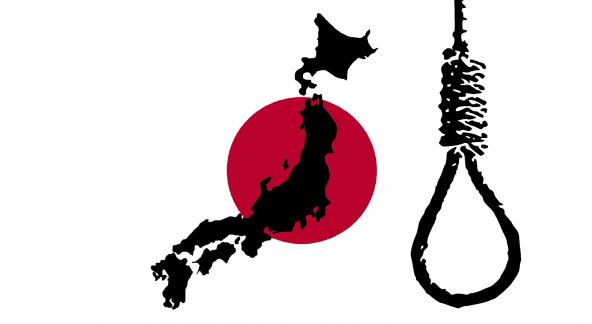
Article(s)
Regarding the execution in Japan of seven people
By World Coalition Against the Death Penalty, on 10 July 2018
STATEMENT – WORLD COALITION AGAINST THE DEATH PENALTY The World Coalition Against the Death Penalty would like to express its sympathy and support to all courageous anti-death penalty activists who have fought bravely to try to prevent the executions of seven people in Japan on the same day, on 6 July. The World Coalition calls […]
2018
Japan
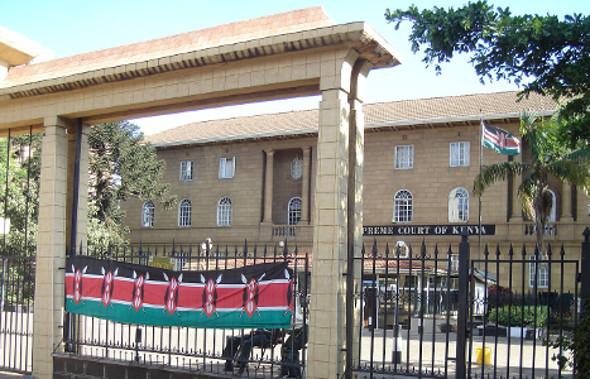
Article(s)
The Supreme Court of Kenya declares the mandatory death penalty unconstitutional
By Thalia Gerzso, on 23 January 2018
On December 14, 2017, the Supreme Court of Kenya declared the mandatory death penalty unconstitutional. This landmark decision puts an end to several years of uncertainties and constitutes an additional step towards the abolition of the death penalty in the country.
2018
Kenya
Article(s)
Abolition in the US: what role for overseas activists?
on 3 February 2008
As part of its 2008 annual conference, the National Coalition to Abolish the Death Penalty (NCADP) organised a brainstorming session to explore the question: “How can the international community support us in our efforts to abolish the death penalty in the US?”
2008
Clemency
Public Opinion
United States
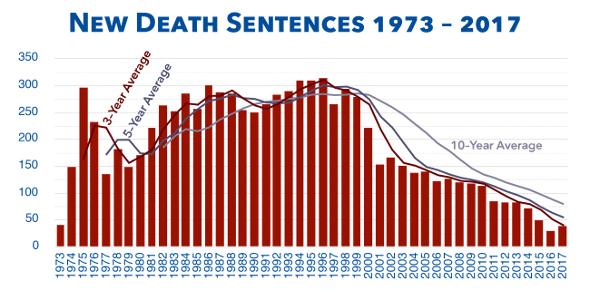
Article(s)
U.S. sees second fewest death sentences and executions in 25 Years
By Death Penalty Information Center, on 22 March 2018
Public support for the death penalty drops to 45-Year low as four More death-row prisoners Exonerated in 2017. “The Death Penalty in 2017: Year End Report” is now available.
2018
United States
Article(s)
Global outrage at Iranian juvenile execution
on 6 May 2009
Human rights organisations and governments worldwide have slammed the Iranian authorities for the illegal execution of Delara Darabi, a young woman convicted of a murder committed when she was 17.
2009
Innocence
Iran (Islamic Republic of)
Juveniles
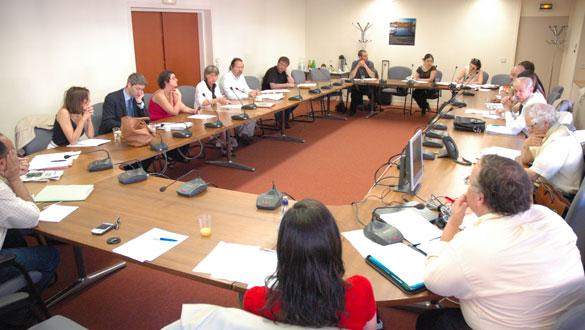
Article(s)
Statutes of the World Coalition Against the Death Penalty
on 26 June 2011
Amended by the General Assembly on June 26, 2011
2011
Article(s)
Youths must stand up against the death penalty!
on 17 September 2007
The Federation of Liberal Students (FEL), a Belgian political organisation, has just joined the World Coalition. FEL president Arnaud Van Praet explains his organisation’s mobilisation against capital punishment.
2007
Belgium
Article(s)
Taiwan activists battle in death penalty-triggered political crisis
on 19 March 2010
After Taiwan’s justice minister was forced to step down for not signing execution warrants, local and international abolitionists rushed in to restore a balanced debate and protect the country’s 44 death row inmates.
2010
Moratorium
Public Opinion
Taiwan
Taiwan
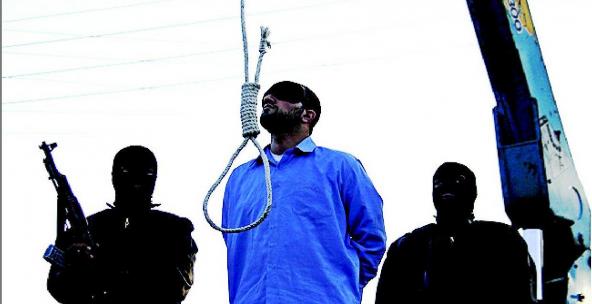
Article(s)
Highest execution numbers in Iran in 10 years
By Mahmood Amiry-Moghaddam, on 13 March 2012
Iran Human Rights has published its annual report on the death penalty in Iran in 2011. IHR’s international spokesperson Mahmood Amiry-Moghaddam says the Iranian authorities are keeping the number of executions high because they use the death penalty as a political tool.
2012
Drug Offenses
Iran (Islamic Republic of)
Juveniles
Women
Article(s)
FIDH report on Vietnam: an update on death penalty statistics
on 19 September 2010
The FIDH and the Vietnam Committee on Human Rights released a new report, From Visions to Facts: Human Rights in Vietnam under its Chairmanship of ASEAN, on 16 August 2010.
2010
Drug Offenses
Moratorium
Viet Nam
Viet Nam
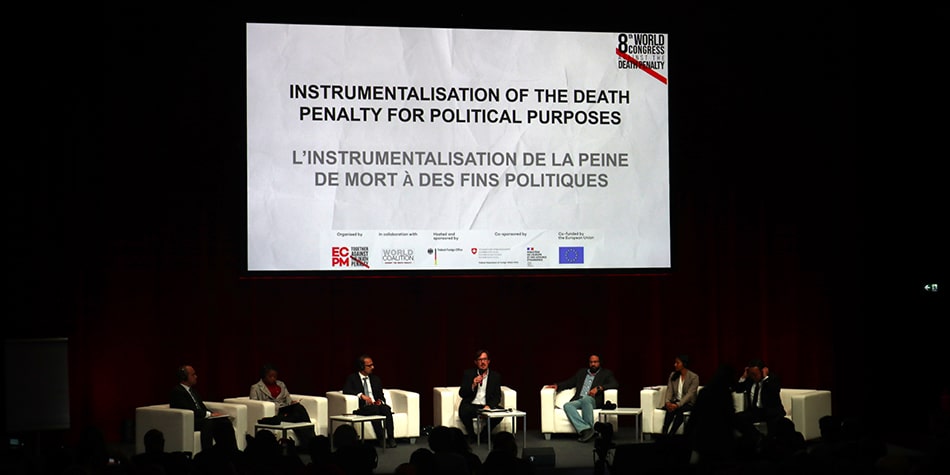
Article(s)
How the Death Penalty is Politicized: A Reflection on the 8th World Congress Against the Death Penalty
By Dunia Schaffa, on 27 January 2023
During the 8th World Congress Against the Death Penalty, in Berlin Germany, the phrase “the death penalty is being used as a political tool” was used frequently – in panels, in round tables, in speeches, even amongst the participants getting a coffee in between Congress events.
2023
Iran (Islamic Republic of)
United States
Article(s)
World Day campaign launched!
on 13 August 2007
The countdown to the fifth World Day Against the Death Penalty on October 10 has begun. It will focus on the proposed resolution against capital punishment to be discussed in the UN this autumn.
2007
Moratorium
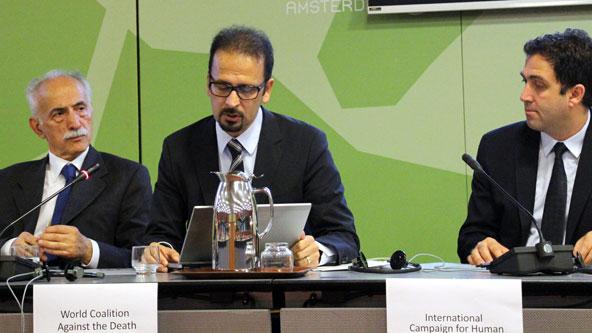
Article(s)
NGOs join forces to tackle capital punishment at Iran’s rights review
By Thomas Hubert, on 30 October 2014
Several World Coalition members are among organisations co-ordinating their efforts to help the international community put pressure on Iran over its use of the death penalty.
2014
Iran (Islamic Republic of)

Article(s)
Justice ministers meet on the eve of Cities Against the Death Penalty
By Elizabeth Zitrin (World Coalition vice-president), in Rome, on 1 December 2013
More than 20 ministers of justice met in Rome for the annual conference on the abolition of the death penalty organised by the Community of Sant’Egidio and heard harrowing testimonies from courageous activists.
2013
Afghanistan
Belarus
Costa Rica
El Salvador
Italy
Philippines
Senegal
Switzerland
United States
Article(s)
Support grows for Davis as his execution is stayed
on 26 October 2008
Troy Davis’s execution was stayed on October 23, four days before he was scheduled to die, as activists took action on his behalf all over the world.
2008
United States

Article(s)
Notes on the Supreme Court Trial in the Chen Fu-hsiang Case: Life or Death Debates in the Style of ChatGPT
By Lin Tzu-Wei (Legal Director of the Taiwan Alliance to End the Death Penalty), on 14 July 2023
Article first published in april on TAEDP’s website Return of life or death debates Following the previous oral arguments on death penalty cases at the Supreme Court in 2021, another life or death debate took place in April this year. This time, I had the opportunity to attend the oral arguments of the “Chen Fu-hsiang […]
2023
Taiwan
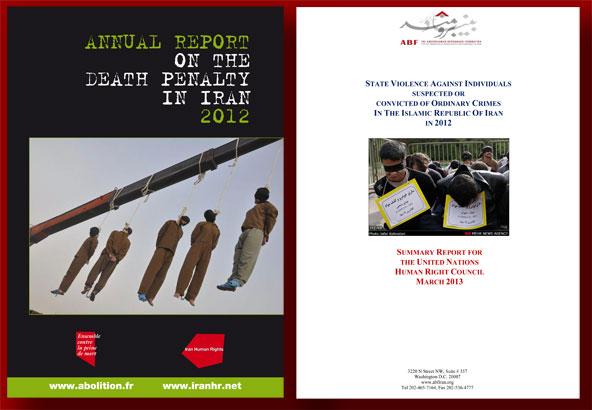
Article(s)
“Iran kills for possession of less than 50g of drugs”
By Thomas Hubert, on 9 April 2013
Annual reports published by two World Coalition member organizations of Iranian exiles expose the disproportionate use of the death penalty in Iran, mostly against drug users and traffickers.
2013
Drug Offenses
Iran (Islamic Republic of)
Article(s)
Mongolian president calls for abolition
on 18 January 2010
In a vibrant speech before the parliament on January 14, President Elbegdorj Tsakhia of Mongolia developed all the arguments put forward by the abolitionist community.
2010
Clemency
Mongolia
Moratorium
Document(s)
“Don’t let them kill us”: Iran’s relentless execution crisis since the 2022 uprising
By Amnesty International, on 4 April 2024
2024
NGO report
Iran (Islamic Republic of)
faMore details See the document
Published in 2024.
This research briefing documents the horrifying surge in executions in Iran in 2023, the highest in eight years. More than half of the executions were for drug-related offences amid a distressing return to a lethal antinarcotics policy since Ebrahim Raisi’s rise to presidency in 2021. With systemic impunity in Iran, the briefing reiterates the need for states to initiate criminal investigations under the principle of universal jurisdiction into crimes under international law committed by Iranian officials, irrespective of the absence or presence of the accused in their territory. Since the “Woman Life Freedom” uprising of September-December 2022, the Iranian authorities have weaponized the death penalty to create a pervasive climate of fear across the country, exert control over the population, and suppress dissent and any challenge to their iron grip on power. As a result, 2023 saw an exponential increase in the number of recorded executions. The authorities executed at least 853 people in 2023, a 48% increase from 2022 when 576 people were executed and a 172% increase from 2021 when 314 people were executed. Amnesty International believes that the real number of executions is higher, but the Iranian authorities are not transparent about the number of people executed each year and do not make data on executions publicly available.
- Document type NGO report
- Countries list Iran (Islamic Republic of)
- Available languages « ن گ راذ ی د ام ار دنشکب » نارحب مادعا یب یاه ناما رد اریا شزیخ نامز زا ن لاس 1

